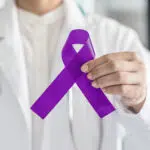Germany observes Children’s Hospice Day every year on February 10. When a child has a life-threatening illness, the child and their loved ones are subjected to extreme physical and mental burdens for years. Some children might even need hospice care, which can be especially distressing. In such circumstances, children need as much support and companionship as possible. Children’s Hospice Day draws attention to the importance of children’s hospice work in Germany and the healthcare workers who offer exceptional services. Engaged and with great empathy, volunteers try their best to take care of children and young people with life-threatening diseases, as well as support their loved ones.
History of Children's Hospice Day
From ancient times, children were cared for at home, usually by the female members of the family. In 1802, the first hospital for children in Paris opened, the Hôpital des Enfants Malades. This was the first time that children were formally acknowledged as having health conditions and needs that were different from adults. From France, the concept of separate pediatric hospitals was adopted by Germany, Italy, Poland, Austria, Russia, and England.
In 1893, Madame Henry, Midwife-in-Chief of the Port Royale program for sick newborns, recognized that babies required special care and set up separate units for their treatment. This was the first attempt at neonatal care. In the 20th century, children’s rights were laid down in two important human rights declarations in 1924 and 1948 by the United Nations. They said that children were entitled to special care and consideration.
Almost every country recognizes the inalienable rights of every child, including the right to the best possible health care. In the 1960s, Dr. Cicely Saunders and Dr. Elisabeth Kübler-Ross pioneered and promoted the development of the modern hospice movement. They both recognized a critically ill patient’s holistic needs. The first hospices were opened with the help of pediatricians. Together, Dr. Elisabeth Kübler-Ross, Dr. Saunders, and Florence Wald created the environment for children’s hospice care that has developed in the United States and Europe. The decade of the 1970s became known as the “pivot of change” when the children’s hospice movement began to develop as an entity separate from the general hospice movement.
Children's Hospice Day timeline
He outlines the special needs of children that are different from adults.
Ida Martinson offers home care for terminally ill children.
One of America’s first children’s hospices opens its doors.
They bring together all those involved in children’s hospice and palliative care.
Children's Hospice Day FAQs
What does it mean to be in hospice care?
Hospice care is a form of palliative care that focuses on the terminally ill. This means that to qualify for hospice, you must have a medical prognosis of fewer than six months left to live.
How long do hospice patients usually live?
Patients admitted to hospice from a hospital are most likely to die within six months. Those admitted from home are the next most likely to die within six months, and those admitted from nursing homes are the least likely.
Is hospice only for the end-of-life?
Hospices provide care for people from the point their illness is diagnosed as terminal to the end of their life, however long that may be.
How to Observe Children's Hospice Day
Thank a hospice worker
Celebrate Children's Hospice Day by thanking a hospice worker. Children’s healthcare and palliative care is a joint effort of healthcare workers and volunteers to work tirelessly to provide holistic care.
Donate to a hospice
You can also observe Children's Hospice Day by donating to the hospice of your choice. Encourage your friends and family to also donate and step up for funding when needed.
Advocate for hospice care
Advocate for children’s healthcare and hospice care on Children's Hospice Day. Speak to your elected leaders and ask them about their plans for pediatric care. Sign petitions, call for action, and demand accessible care.
5 Facts About Children’s Healthcare That You Need To Know
Child mortality remains an issue of concern
Every year, 10 million children die aged five and under.
Pneumonia is fatal for children
It is the single largest cause of death for children aged five and under.
Diarrhoeal diseases cause death in children
Exclusive breastfeeding helps prevent diarrhea among young children.
Malaria kills a child every 30 seconds
It is the leading cause of death in Africa among under-fives.
HIV infection through mother-to-child transmission
An estimated 2.3 million children under 15 years of age are living with HIV.
Why Children's Hospice Day is Important
It is an important service
Hospice care and care for the terminally ill are indispensable services. Observations such as Children's Hospice Day encourage us to advocate for healthcare for all, including specialized care.
Ensures dignity of life
Children's Hospice Day ensures that every child lives with dignity even when they are suffering from terminal illnesses. Hospice care offers holistic care that takes care of the patient’s physical and emotional needs.
Day to remember our loved ones
Children's Hospice Day also offers support to families who have lost children to terminal illnesses. These families can come together, share their stories, and help those in need.
Children's Hospice Day dates
| Year | Date | Day |
|---|---|---|
| 2025 | February 10 | Monday |
| 2026 | February 10 | Tuesday |
| 2027 | February 10 | Wednesday |
| 2028 | February 10 | Thursday |
| 2029 | February 10 | Saturday |
























